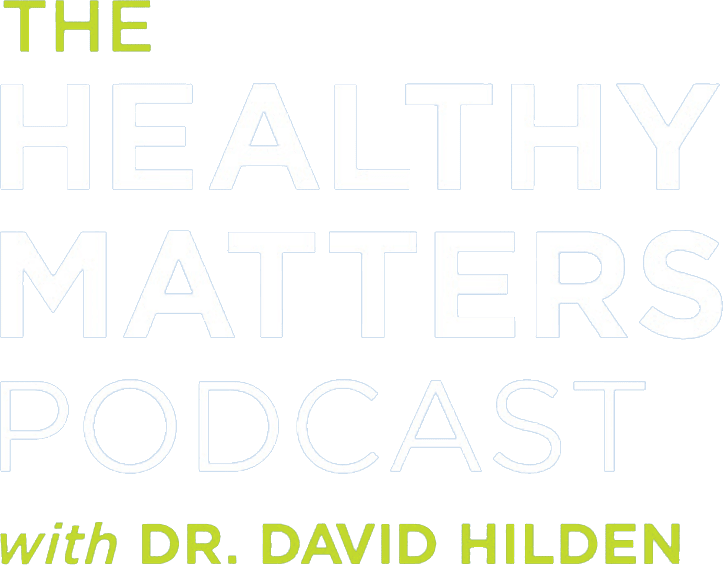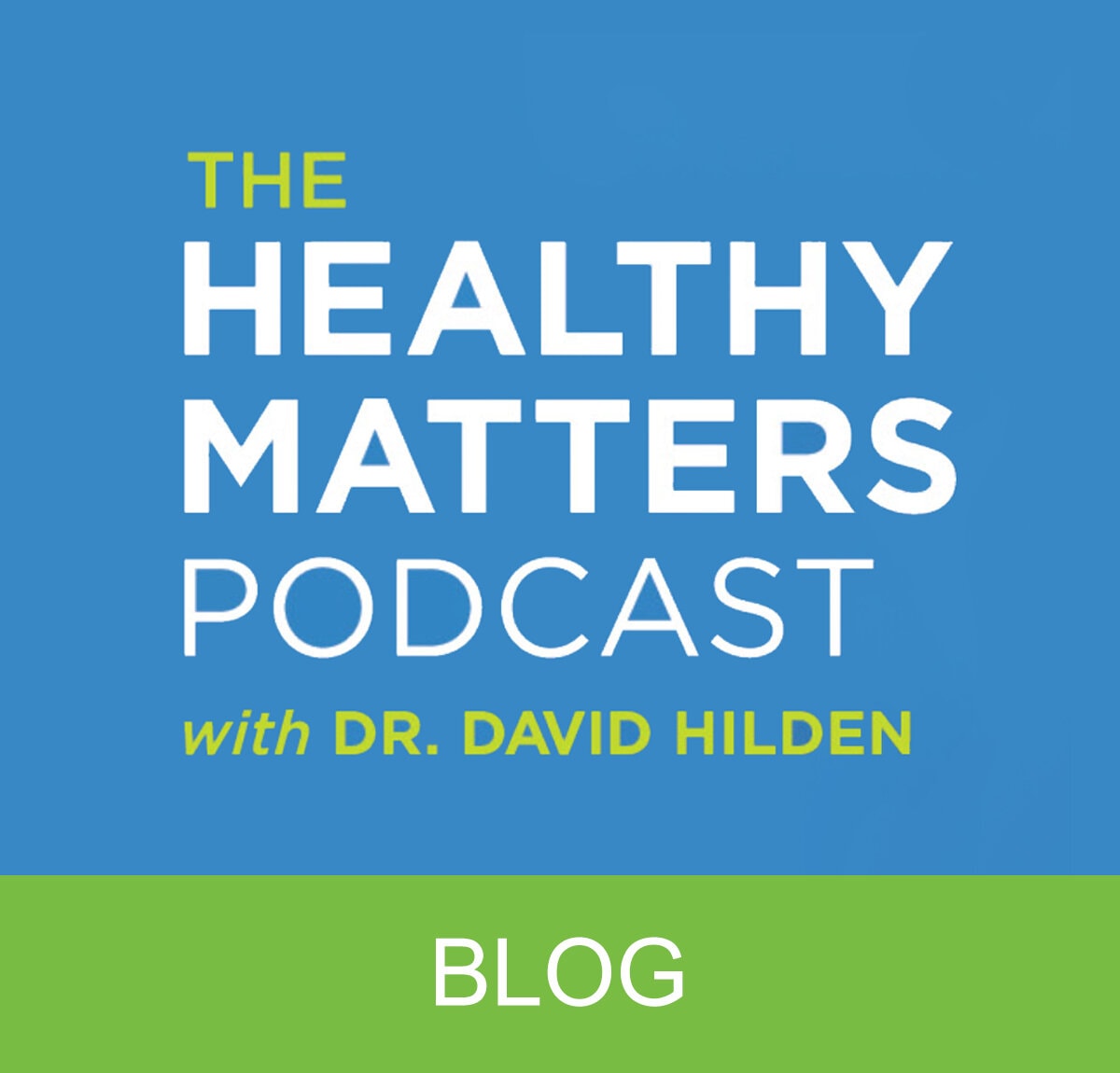Hilden’s House Calls – from Polio to Pickled Probiotics
It’s another informative Hilden’s House Calls on Episode 17 of the Healthy Matters Podcast where Dr. Hilden answers questions from listeners about everything from polio to pickled probiotics.
Marie from White Bear Lake heard about a recent polio case near New York City. Yes – it’s true. A case of poliomyelitis – which was thought to have been eradicated – was recently diagnosed. Unfortunately, polio still exists in the world, but it is indeed rare. There are two types of polio vaccines: one is a shot, and one is an oral liquid. The oral one is no longer used in the United States because it contains a live virus; however, it is used in other parts of the world. We’ll learn more about this but it’s likely that the individual with the virus came from another country where they received a vaccine that we do not use in this country.
John in Minneapolis (who is also our unpretentious podcast producer) loves pickles and apparently comes from a strong paternal line of pickled food enthusiasts. Herring, beets, onions, mushrooms – no preserved item is safe within his grip. He asks if there is a health risk associated with his fervor for the fermented.
John might be the first person I’ve met with this degree of pickle passion. Pickling basically marinates and preserves food – usually with vinegar and some salt (brine). Kimchi, for example, probably contains lots of probiotics because as items ferment, they develop beneficial bacteria. That can be good for your gut, and it might contain other vitamins and nutrients. The only downside that I’m aware of is the salt content. If you’re someone with heart failure or high blood pressure, you should monitor your salt intake – wherever it comes from – even if it’s a homemade jar of pickles.
Steve from Kansas City called in to ask us a question about grilled foods. Is there such a thing as too much barbecue? I tread lightly on this answer for our friend from one of the famous barbecue cities in the United States. And it made me hungry.
Claire in St. Cloud asked about monkeypox. Diane, from Champlin had questions about the shingles vaccine. Sarah in Hudson wondered about Paxlovid antiviral pills for treating COVID.
Cathy from Coon Rapids asks about the new 988 number for mental health. Everybody knows to call 9-1-1 for emergencies, but now we have another number to call specifically for mental health concerns. When you call this number a live, highly trained counselor answers. It’s best used by people in a mental health crisis, specifically those who are at risk of hurting themselves.
Kevin from East Grand Forks wrote in and asked us about the connection between exercise and mental health. Is there any connection between exercise and cognitive decline, such as Alzheimer’s?
Right now, there are millions of people who have cognitive problems like dementia, Alzheimer’s disease, etc. We don’t know how or why it develops in some people, but lots of research is being conducted and what they are finding is that exercise – both physical and mental exercise – have been shown to help. I share more specific information about this in the podcast. So take a listen and go for a walk – exercise your brain AND your body with Episode 17 of the Healthy Matters Podcast!
Pins and Needles – Let’s Talk About Acupuncture!
As many of you know, I’m the last kid of four, and I wasn’t immune to a bit of needling from my three older sisters. And they’ll even tell you today that it was for my own good. Which brings me to the topic of today’s podcast – acupuncture. But this, my dear siblings, is a truly therapeutic form of needling with proven benefits – and actually relieves pain (vs. inflicting). A bit of levity there but I’m sure some of you can relate to having those overly helpful older siblings.
Jessica Brown, LAc, DiplAc, MOm is an acupuncturist at Hennepin Healthcare who many patients find extremely helpful in treating mostly complaints about pain, but also concerns related to digestion, sleep and anxiety. She joined me for Episode 16 of the Healthy Matters Podcast. Her team of eight acupuncturists specialize in treatments for oncology support, orthopedics, and women’s health issues. But what really gets people in the door for acupuncture is relief for pain – and headaches are a common complaint.
“Headaches are multifaceted and can be from many different causes,” Jessica said. “And sometimes they are hormone related. Oftentimes I’ll see women who have increased headaches around their cycle, but sometimes they’re also due to things like trauma. We get a lot of referrals for patients in the Traumatic Brain Injury Center just to help with managing their headaches after head trauma. Those headaches can be long lasting and difficult to resolve.”
A benefit of treating patients with acupuncture is that no medication is required.
“There are side effects to many of the medications that are used to treat headaches,” Jessica explains. “So acupuncture is a nice tool to use in order to manage them. A lot of headaches are also related to tension and acupuncture’s extremely good at diffusing neck and upper back tension, which, if that is the cause of the headaches, sometimes takes care of it.”
We’ve all heard that acupuncture has been around for a long time (like 3,000 years), but how does it work, exactly? Jessica describes it like this:
“Essentially with the needle that we use, we’re creating a stimulation in the body that engages multiple systems of the body, including the nervous system, the cardiovascular system, the endocrine system and the immune system. If there is a local pain area, we’re definitely treating that area, but we’re also stimulating increased circulation. We’re stimulating the release of endorphins and enkephalins, which are your body’s natural pain killers.”
She said that after treatment, people find that even though they may come in for one specific issue, they experience an impact on other systems including digestion and sleep – so acupuncture can have a local as well as a systemic response.
Women are also experiencing the benefits of acupuncture for menopause symptoms like hot flashes, energy issues, pelvic pain and headaches. While the actual mechanism of how this has proven beneficial for helping these hormonal issues is not fully understood, it is being studied.
If you’re curious about this safe, effective alternative to treating pain, nausea, sleep and anxiety issues, please take a listen to Episode 16 of the Healthy Matters Podcast with my guest Jessica Brown.
Hilden’s House Calls – An AMA with the MD
More words of wisdom from Hilden’s House Calls in Episode 15 of the Healthy Matters Podcast – or at least some handy information to chew on before you train for a marathon, clean your ears, or donate bone marrow.
We start out by tackling something a lot of you can relate to at nighttime – trying to get to sleep with a bed partner who is shaking the house with their snoring. Kate from Willmar is ready to trade in her husband of 25 years who has this issue.
Hold on Kate – the good news is that there are new treatments for snoring – but first you must convince your husband to do something about it. Snoring is usually an anatomical problem like sleep apnea, but it can also be a symptom of other problems. A sleep study can help diagnose what’s going on, but a visit to your doctor with your concerns may be the best first step toward a good, healthy night’s sleep for both you and your bed partner.
Seth from Green Bay wrote in with a very common concern. “Is there anything that can be done medicinally or nutritionally to prevent hair loss?”
Most hair loss is age-related, and it happens to both men and women but is found more prominently in men. There are a few things you can do including treating it with medications under the care of a physician, laser treatments, and hair follicle transplants. But if your hair loss is significant, you can also choose to embrace it by wearing a wig or a Vikings hat. I’m kidding! Of course, any hat will do. Go Packers (and Vikings!).
Harry from Iowa City was wondering about limbs that fall asleep. “What does it mean when your legs fall asleep? What’s happening in your body?
Well now you’ve really hit a nerve. Seriously! What you’re talking about is called paresthesia and it’s actually not your blood supply getting cut off. It’s almost always a nerve problem – you’re pinching a nerve. There are people who live with permanent paresthesia or neuropathies, but for those of us whose leg just falls asleep because we’re sitting on it and pinching a nerve – it’s a just a temporary thing and it usually resolves within 30 seconds.
Arthur from Ann Arbor, Michigan says, “I have a twitching eyelid that’s driving me nuts. What causes this? And is there anything I can do to make this stop?”
Our eyeballs are finely tuned, small parts of our bodies with many muscles. There are six muscles along that control each individual eyeball. And there are little muscles that control your eyelids, and microscopic nerves and very small blood vessels that go to your eyelids. Anytime those things get irritated, they twitch, and the vast majority of these twitches are not dangerous. It can happen if you’re sleep deprived, if you have a little viral inflammation on your eyelid, or something in your eye that’s just irritating it, but it’s temporary. If it doesn’t get better and goes on for days and days, you should see someone with neurologic expertise.
Check out the rest of Hilden’s House Calls in Episode 15 of the Healthy Matters Podcast and don’t hesitate to dial in your questions to 612-873-8255 or simply send an email to healthymatters@hcmed.org. Thank you for listening to Healthy Matters – be healthy and well!


